
If you can’t beat them, join them and get royalties.
Our writer Seiji Nakazawa has long pursued a career in music, but being one of the toughest fields to earn a stable living in, he has had to supplement his meagre musical income by eating cheeseburgers and posing nude for us on the side.
He hasn’t given up on the dream though, and has had his share of small successes, even releasing five albums with a few different bands. He had even written some of the tracks himself and as such as eligible for royalty payments.
▼ One of Seiji’s projects, Fesubt
However, as a part of the agreement with his publishers, enough copies of the album would have to be sold to generate 5,000 yen (US$46) in royalties in a certain period. Otherwise, the amount would carry over into the next term until that bar is reached.
For many somewhat successful artists that’s not an unreasonable hurdle to overcome, but in Seiji’s case he has yet to receive a single yen even after years. Still, every once in a while he gets a statement from his publishers in the mail reminding him of his failure.
▼ “Time for your quarterly goose egg for you to suck on.”
Not being able to sell records is one thing, but being periodically reminded of it in writing can be downright demoralizing. This June, however, an unlikely hero came to Seiji’s aid: JASRAC.
Regular readers of our site may recall various stories about Japan’s musical copyright enforces, in which they are often criticized by the public as “a hive of evil” and “killing the industry” for their heavy-handed tactics.
In fact, Seiji first came into contact with JASRAC at about the end of last year. He went to their offices as a part of a exposé on their inner workings. He was assigned to pose as a successful musician interested in protecting his vast body of lucrative written works, while really digging up whatever dirt he could find on the copyright agency.
▼ Seiji’s JASRAC application form
However, while on the inside, a smooth-talking rep had convinced him to become a member.
▼ That is Seiji’s JASRAC membership card, in case you’re as distracted by his hyper-extended thumb as I am.
Seiji’s songs were already tied up with the various publishers and therefore not could not be included in his JASRAC agreement, but there was one song that belonged to Seiji outright: “RocketMan.”
This is the theme song of our Japanese language site which was written and composed by Seiji and performed by him along with the rest of the staff. Since it wasn’t on any of his previous albums, it was the only song he could submit to JASRAC.
▼ Now, about half a year later, Seiji received his first royalty statement from them…
After a half a year under the wing of Japan’s controversial copyright enforcers, Seiji had raked in 20 yen ($0.19) in royalties. He actually got 23 yen ($0.21), but after the fat cats at JASRAC took their cut of 1 yen ($0.0093) and 2 yen ($0.0186) went to taxes, he had about two-thirds of the price of a Black Thunder mini-chocolate bar.
According to his statement, “RocketMan” earned money through “Interactive Transmission” and “Interactive Reproduction” which basically means online usage. Seiji had learnt at the JASRAC offices that they have a “comprehensive contract” with major sites such as YouTube, which means that a site like YouTube basically pays them a certain agreed upon amount and JASRAC then distributes a share of that to each of its members based on their share of the overall clicks.
▼ A JASRAC rep explaining to Seiji how YouTube revenue is collected and distributed.
This means that you are free to use or perform “RocketMan” and other JASRAC songs as long as the song’s creator and publisher also allow it. In this case Seiji is both the creator and publisher and he says, “It’s cool.” This also only goes for video sharing sites that JASRAC has such a contract with, such as YouTube.
So, was all this worth the 54,000 yen ($500) registration fee and subsequent 4,000 yen ($37) yearly membership fees? Well, in terms of money, hell no, but after years of having zeroes mailed to him, this 20 yen gave Seiji the much needed sense that his music had value and gave him hope that he could build on this in the future.
So be sure to use or cover “RocketMan” in your own video works as much as you can, and between our kind readers and confused Elton John fans, Seiji may just see upwards of 35 yen ($0.32) in royalties by next Christmas.
Photos © SoraNews24
● Want to hear about SoraNews24’s latest articles as soon as they’re published? Follow us on Facebook and Twitter!


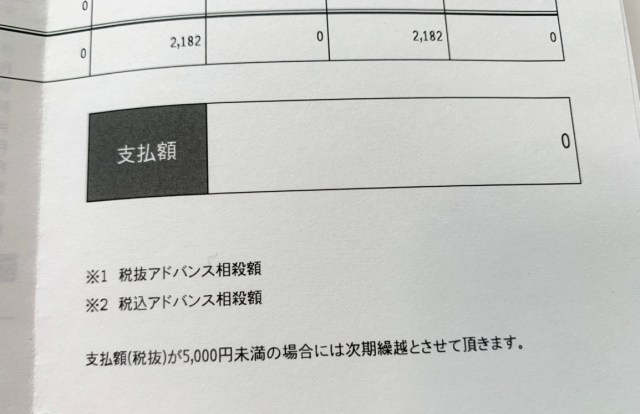
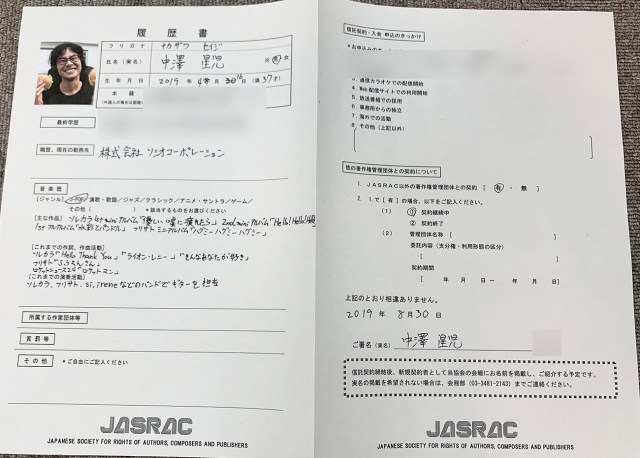
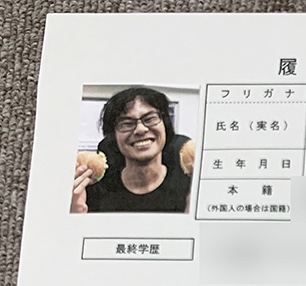
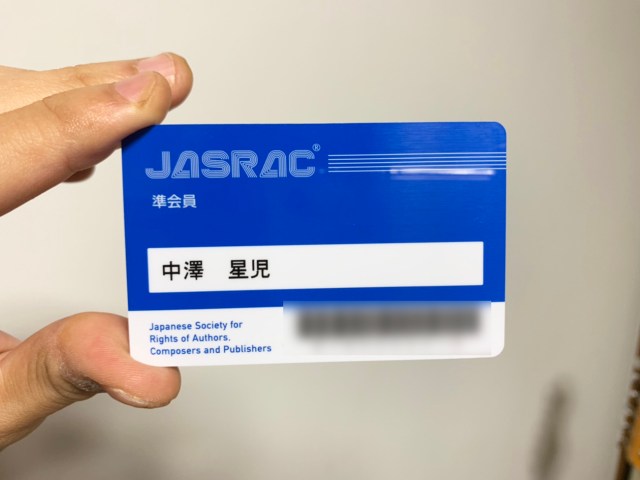
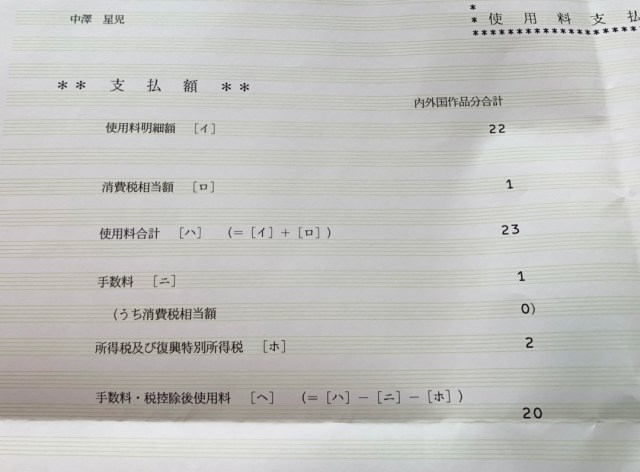
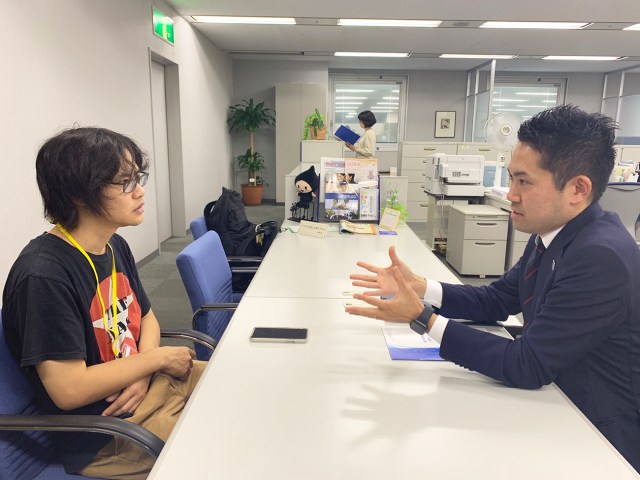
 What’s it like to attend an idol concert where they’re singing lyrics that you wrote? Complicated
What’s it like to attend an idol concert where they’re singing lyrics that you wrote? Complicated A Gintama fan’s emotional 19-year journey to buy a proper Lake Toya bokuto wooden katana【Pics】
A Gintama fan’s emotional 19-year journey to buy a proper Lake Toya bokuto wooden katana【Pics】 These Pakistani students in Tokyo had never been to the beach, and that’s something we had to fix
These Pakistani students in Tokyo had never been to the beach, and that’s something we had to fix Does Tokyo’s King of Tonkatsu live up to its name? We find out 【Taste Test】
Does Tokyo’s King of Tonkatsu live up to its name? We find out 【Taste Test】 We test out a product that promises it will make cars obsolete: these goofy looking boots
We test out a product that promises it will make cars obsolete: these goofy looking boots Seaside scenery, history, and so many desserts on Yokohama’s Akai Kutsu【Japan Loop Buses】
Seaside scenery, history, and so many desserts on Yokohama’s Akai Kutsu【Japan Loop Buses】 Japanese city loses residents’ personal data, which was on paper being transported on a windy day
Japanese city loses residents’ personal data, which was on paper being transported on a windy day Do Hi-Chew-flavor Hi-Chews have a reason to exist?【Taste test】
Do Hi-Chew-flavor Hi-Chews have a reason to exist?【Taste test】 Suntory x Super Mario collaboration creates a clever way to transform into Mario【Videos】
Suntory x Super Mario collaboration creates a clever way to transform into Mario【Videos】 Foreigner’s request for help in Tokyo makes us sad for the state of society
Foreigner’s request for help in Tokyo makes us sad for the state of society Haku is…Chihiro’s dead brother? Studio Ghibli fans blown away by Spirited Away theory
Haku is…Chihiro’s dead brother? Studio Ghibli fans blown away by Spirited Away theory Mt. Koya planning to instate visitor’s tax to cope with huge tourist numbers
Mt. Koya planning to instate visitor’s tax to cope with huge tourist numbers Red light district sushi restaurant in Tokyo shows us just how wrong we were about it
Red light district sushi restaurant in Tokyo shows us just how wrong we were about it Osaka governor suggests lowering voting age to 0 to curb population decline
Osaka governor suggests lowering voting age to 0 to curb population decline Harajuku Station’s beautiful old wooden building is set to return, with a new complex around it
Harajuku Station’s beautiful old wooden building is set to return, with a new complex around it McDonald’s new Happy Meals offer up cute and practical Sanrio lifestyle goods
McDonald’s new Happy Meals offer up cute and practical Sanrio lifestyle goods Japanese ramen restaurants under pressure from new yen banknotes
Japanese ramen restaurants under pressure from new yen banknotes French Fries Bread in Tokyo’s Shibuya becomes a hit on social media
French Fries Bread in Tokyo’s Shibuya becomes a hit on social media Studio Ghibli releases new action figures featuring Nausicaä of the Valley of the Wind characters
Studio Ghibli releases new action figures featuring Nausicaä of the Valley of the Wind characters New private rooms on Tokaido Shinkansen change the way we travel from Tokyo to Kyoto
New private rooms on Tokaido Shinkansen change the way we travel from Tokyo to Kyoto Tokyo Tsukiji fish market site to be redeveloped with 50,000-seat stadium, hotel, shopping center
Tokyo Tsukiji fish market site to be redeveloped with 50,000-seat stadium, hotel, shopping center Beautiful Ghibli sealing wax kits let you create accessories and elegant letter decorations【Pics】
Beautiful Ghibli sealing wax kits let you create accessories and elegant letter decorations【Pics】 Studio Ghibli releases Kiki’s Delivery Service chocolate cake pouches in Japan
Studio Ghibli releases Kiki’s Delivery Service chocolate cake pouches in Japan New definition of “Japanese whiskey” goes into effect to prevent fakes from fooling overseas buyers
New definition of “Japanese whiskey” goes into effect to prevent fakes from fooling overseas buyers Our Japanese reporter visits Costco in the U.S., finds super American and very Japanese things
Our Japanese reporter visits Costco in the U.S., finds super American and very Japanese things All-you-can-drink Starbucks and amazing views part of Tokyo’s new 170 meter-high sky lounge
All-you-can-drink Starbucks and amazing views part of Tokyo’s new 170 meter-high sky lounge More foreign tourists than ever before in history visited Japan last month
More foreign tourists than ever before in history visited Japan last month New Pokémon cakes let you eat your way through Pikachu and all the Eevee evolutions
New Pokémon cakes let you eat your way through Pikachu and all the Eevee evolutions Disney princesses get official manga makeovers for Manga Princess Cafe opening in Tokyo
Disney princesses get official manga makeovers for Manga Princess Cafe opening in Tokyo Sales of Japan’s most convenient train ticket/shopping payment cards suspended indefinitely
Sales of Japan’s most convenient train ticket/shopping payment cards suspended indefinitely Sold-out Studio Ghibli desktop humidifiers are back so Totoro can help you through the dry season
Sold-out Studio Ghibli desktop humidifiers are back so Totoro can help you through the dry season Japanese government to make first change to romanization spelling rules since the 1950s
Japanese government to make first change to romanization spelling rules since the 1950s Ghibli founders Toshio Suzuki and Hayao Miyazaki contribute to Japanese whisky Totoro label design
Ghibli founders Toshio Suzuki and Hayao Miyazaki contribute to Japanese whisky Totoro label design Doraemon found buried at sea as scene from 1993 anime becomes real life【Photos】
Doraemon found buried at sea as scene from 1993 anime becomes real life【Photos】 Tokyo’s most famous Starbucks is closed
Tokyo’s most famous Starbucks is closed One Piece characters’ nationalities revealed, but fans have mixed opinions
One Piece characters’ nationalities revealed, but fans have mixed opinions We asked a Uniqlo employee what four things we should buy and their suggestions didn’t disappoint
We asked a Uniqlo employee what four things we should buy and their suggestions didn’t disappoint Princesses, fruits, and blacksmiths: Study reveals the 30 most unusual family names in Japan
Princesses, fruits, and blacksmiths: Study reveals the 30 most unusual family names in Japan Our reporter Seiji gets a weird package from overseas, meets a friend he didn’t know he had
Our reporter Seiji gets a weird package from overseas, meets a friend he didn’t know he had Unboxing the McDonald’s French Fry Snack Maker【Review】
Unboxing the McDonald’s French Fry Snack Maker【Review】 Crazy-huge triple-decker wagyu hamburger steak will draw you to Akihabara even if you hate anime
Crazy-huge triple-decker wagyu hamburger steak will draw you to Akihabara even if you hate anime “Hey, how’d you get our personal information?” we ask a Japanese telemarketer
“Hey, how’d you get our personal information?” we ask a Japanese telemarketer We cook a monjayaki Japanese pancake on the hood of a car during Japan’s hottest summer ever【Vid】
We cook a monjayaki Japanese pancake on the hood of a car during Japan’s hottest summer ever【Vid】 “Hey, Japanese taxi driver, take us to the best Sapporo ramen place!” – Things don’t go as planned
“Hey, Japanese taxi driver, take us to the best Sapporo ramen place!” – Things don’t go as planned Solar Chef: We tried cooking an egg using the power of the sun and a magnifying glass
Solar Chef: We tried cooking an egg using the power of the sun and a magnifying glass What happens when you cook beer with potato chips in a rice cooker?
What happens when you cook beer with potato chips in a rice cooker? What it’s like to attend an idol concert where they’re singing lyrics that you wrote【Pt. II】
What it’s like to attend an idol concert where they’re singing lyrics that you wrote【Pt. II】 Amazon Japan are selling Uber Eats backpacks and they’re surprisingly useful
Amazon Japan are selling Uber Eats backpacks and they’re surprisingly useful What it’s like to eat dancing squid in Japan for the first time
What it’s like to eat dancing squid in Japan for the first time Demon Slayer teams up with beef bowl chain to excite fans, test their dexterity with Tanjiro bowl
Demon Slayer teams up with beef bowl chain to excite fans, test their dexterity with Tanjiro bowl SoraNews24’s loneliest reporter tests Japan’s new anime-style AI girlfriend smartphone app 【Vid】
SoraNews24’s loneliest reporter tests Japan’s new anime-style AI girlfriend smartphone app 【Vid】 How to eat a kebab without making a godawful mess – Advice from an Akihabara kebab merchant
How to eat a kebab without making a godawful mess – Advice from an Akihabara kebab merchant What’s so funny about “Sweet Fries of Clowns” from Burger King Japan?
What’s so funny about “Sweet Fries of Clowns” from Burger King Japan? The best Japanese curry in Japan isn’t eaten at a restaurant
The best Japanese curry in Japan isn’t eaten at a restaurant
Leave a Reply